Opinion
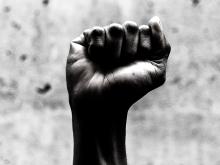
I can remember when it first happened — when my dungeon shook and my chains fell off. I had recently gone through a horrible experience and felt there was nowhere to turn, no one who could give voice to my ache, my pain, and my rage.
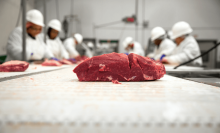
Yet history repeats itself – leaders are sacrificing lives to ensure an "uninterrupted food supply." These meat and poultry plants, just like cotton fields once were, have been deemed "critical infrastructure" to the nation's economy.
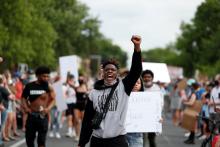
Remember, Lord, what happened to Ahmaud Arbery, Breonna Taylor, and George Floyd;
look and see the disgraceful way their bodies were treated.
Our inheritance of the image of God in every human being
has been co-opted and denied by others.
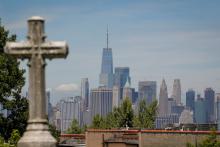
The need for lament could not be more urgent. The painful reality of the loss of more than 100,000 American lives requires the response of lament. However, a genuine corporate lament seems to have eluded many Americans, even those in the church. Lament is a biblical practice that has been long-neglected in the American church.
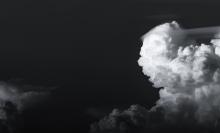
Lament, much like our understanding of salvation, ties my suffering with those around me. Christian traditions too distant from experiences of collective marginalization will have trouble penning laments about deliverance from shared sorrow. We need practices of solidarity that reveal those who are unseen in our world starting with the cries in our worship, followed by the witness in our deeds. Yet laments that do not incorporate the collective experience fail to produce practices that could help us survive in spaces of vulnerability and communal loss.
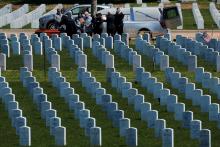
As we passed the horrifying milestone of 100,000 American deaths to the coronavirus, we’ve started using the hashtag #Lament100k to urge people to pause — to lament. Of course, the sentiment falls short. As a friend said to me, we can’t abbreviate all these lives; we have to try to feel all one hundred thousand of them.
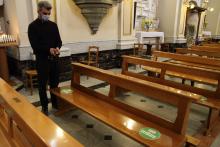
2. Do we understand how church life is inherently different than other expressions of civic life?
While many of the businesses that have stayed open, or are being authorized to reopen, are inherently transactional, what happens in churches in inherently social and relational. We eat together; we sing together; we embrace one another; we care for one another’s children. These familiar patterns have been ingrained in us through years of meeting together, and will be challenging for many to shake even when we know the risk and have a plan in place.
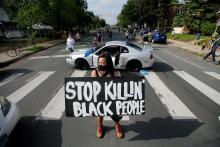
We are so troubled.
We are the ones in denial of our violence
and we are the ones who are crying out for justice.
Can you feel us shaking?
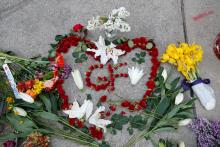
I can’t breathe.
These were George Floyd’s desperate cries for help as he gasped for breath and clung to life due to the senseless brutality of four police officers in Minneapolis, one of whom, Derek Chauvin, had his knee and weight crushing Floyd’s neck.

The COVID-19 pandemic has now laid bare what is still “acceptable” to white America, including many white churches. The unequal suffering of this plague has been verified by the statistics.

When I began my time at Harvard Divinity School, I considered using my degree towards becoming a prison chaplain. But the more I learned about the exploitation of incarcerated people, their families, and their communities, I realized the pursuit of this ministry must be done in a way that does not reinforce the prison-industrial complex.

Symbolically, the Scopes Trial on teaching evolution was a turning point.

What is needed now, as always, is real moral leadership.

One of the biggest gleanings from Mrs. America is that women and their motivations for power are complicated and far from monolithic.

COVID-19 reveals the artificiality of the urban/rural divide.
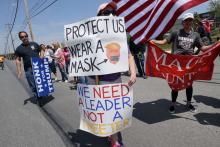
Freedom is about how do we humbly care for one another.

Burton and Dreher share similar aesthetic views about Christianity and the past.

Rev. Jim Wallis talks with theologian and immigrant advocate Karen González about the lessons of immigration in the Bible. The metrics of the COVID-19 pandemic show how disproportionately affected our immigrant and refugee neighbors have been.

At the end of the semester, I snipped an iris at its base, the luminous purple petals reminding me of our history as resilient people in diverse places. During my closing online class, I showed the students a vase of flowers, which my daughter and I had arranged on the wrought-iron table on my deck. Maybe I was subconsciously using perennials that return each year as some obvious metaphor for persistence as they peered at me from their childhood homes in California, Texas, South Carolina, and Maine.
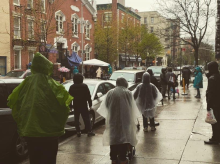
Much has been written about the ways in which the pandemic is exposing the fragility of our communities and the underlying vulnerabilities that were ignored. Over the years, Father’s Heart has tried to do what it can to knit the fraying margins of the neighborhood back into the whole, by reminding people of their God-given dignity and worth. But they are working against decades-long policies that have kept so many New Yorkers from accessing affordable housing and better paying jobs.